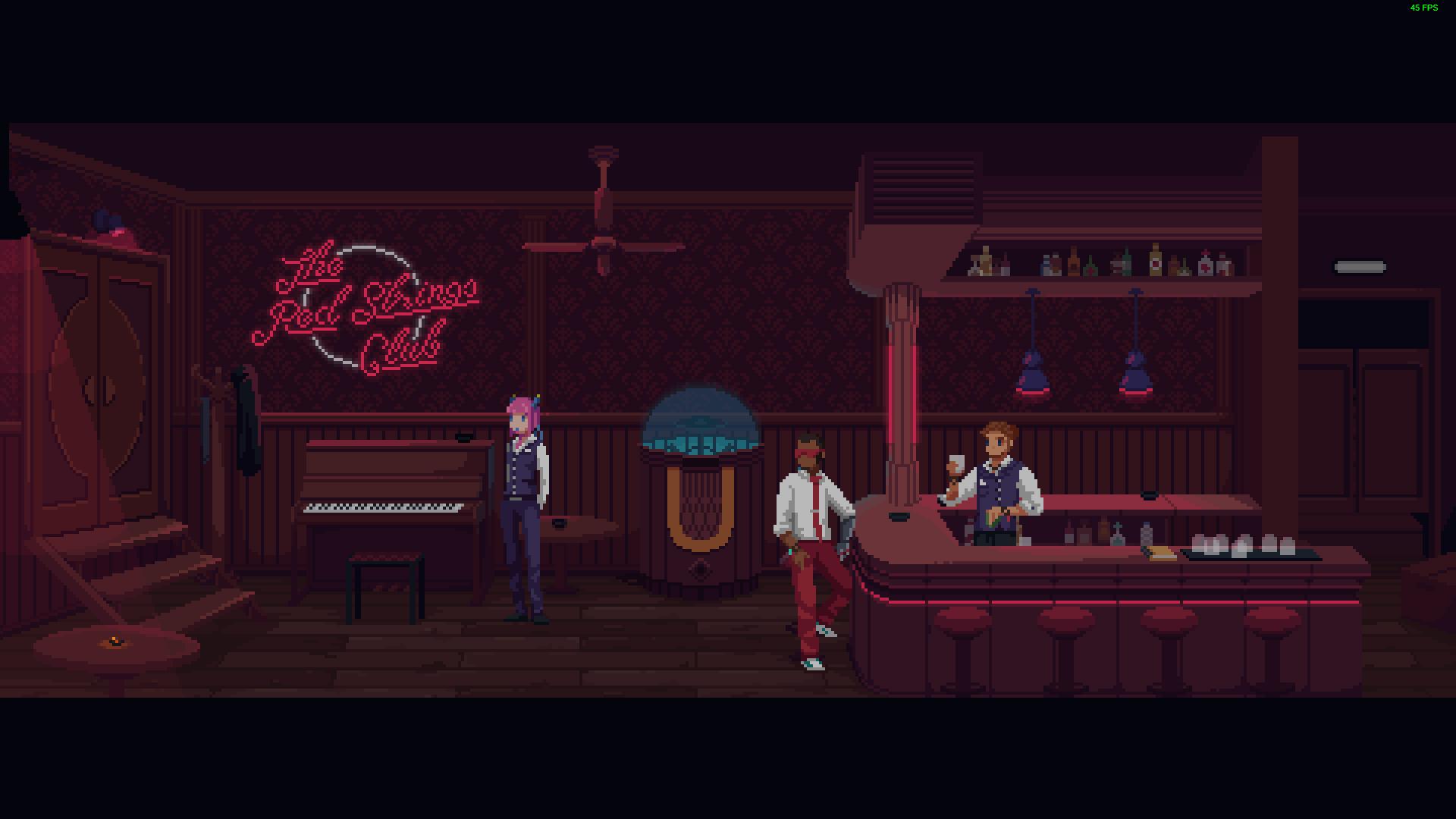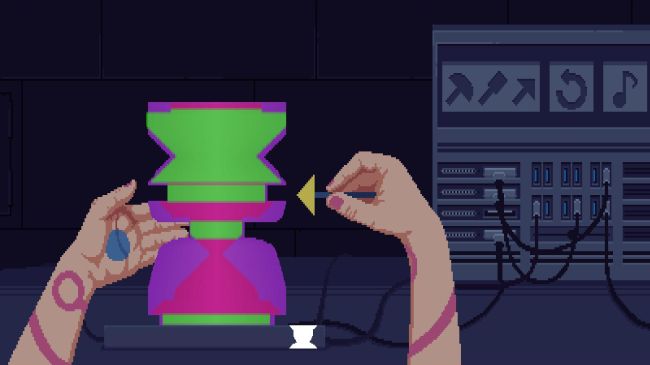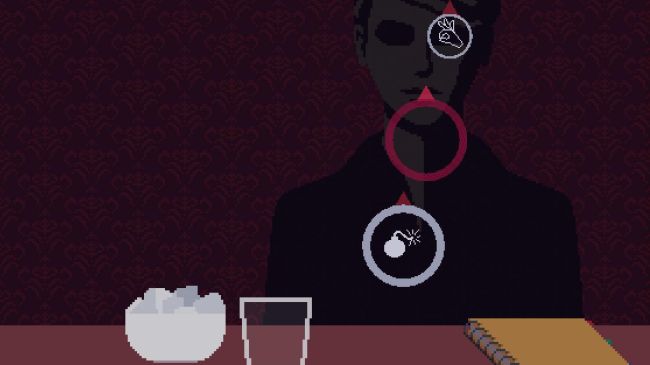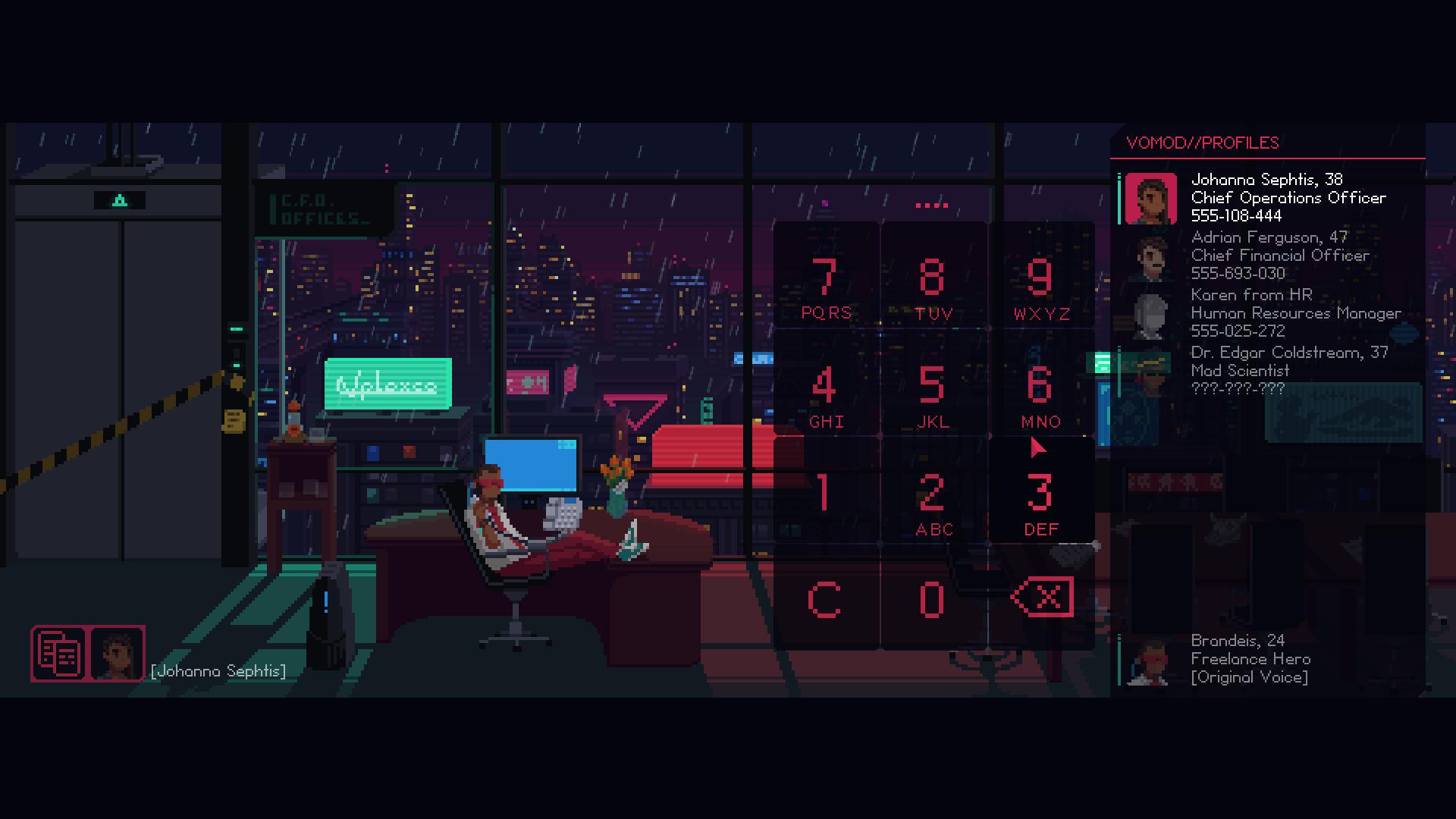The Red Strings Club is a cyberpunk game about underdogs and weirdos
Three games in one, each a different slice of dystopian future.

Akara-184's job is to make people happy. Akara-184 is a genderless android who crafts cybernetic upgrades that make humans fitter, happier, and more popular on the internet. Donovan's job is also to make people happy, because he's a bartender and that's how alcohol works. He's an information broker on the side, manipulating customers by mixing drinks that accentuate personality traits he exploits to keep them talking. Brandeis wants to make people happy too, in his case by bringing down the corporations. He's a freelance hacker in a cyberpunk dystopia and that's what they're supposed to do.
The Red Strings Club is the new game from Deconstructeam, the indie studio responsible for Gods Will Be Watching and various other small projects. It's based on a couple of those smaller game jam projects, and the variety that gives The Red Strings Club is one of its biggest strengths. You play as each of those three main characters in turn, and as you do it's like three different games.
When you're playing a transhumanist implant robot it's about matching upgrades to clients, figuring out whether enhancing someone's sex appeal or rendering them immune to the effect of internet comments will fix their problems. Once you've chosen an upgrade you spin up the lathe, put on a tune, and use the mouse to carve it out of biomatter.

It's an unusual way of representing the process and honestly a bit fiddly, but trying to second guess which modification will actually solve humans' ridiculous problems is darkly funny. I could give this person everything they desire, or I could just block the part of their brain that makes them desire things. Tough choice.
I wanted cyberpunk games to remember the genre's roots in stories of underdogs and outsiders, not just badass cyborgs and investigators. The Red Strings Club does exactly that.
Bartending is a more spiritual act. Emotional hotspots appear over customers and you steer toward the one you want to activate, perhaps sympathy or paranoia or pride or regret, by mixing spirits. Each bottle has an arrow worked into its logo in case you forget bourbon goes up and vodka down, and ice cubes alter the size of your target until it's perfect.
Dragging the physics-enabled bottles around is again a bit fiddly (there will be spills), but navigating dialogue trees to draw out secrets makes me feel like a mastermind. It's the same basic concept as VA-11 Hall-A: Cyberpunk Bartender Action but you make dialogue choices as well as serving drinks, and that makes all the difference. There's a sense of subtle control as you steer executives, scientists, and renegades through their stories.

Finally, there's social engineering. Since hacking minigames are hard to get right and so very easy to get wrong, The Red Strings Club doesn't have one. Its climax, an epic run on a corporate high-rise, is conducted entirely over the phone with a voice modulator that lets you impersonate other people. You work your way through a database of employees until you've pretended to be everyone from Karen in HR to the top brass. The dialogue and decision-making that are the best elements of The Red Strings Club are cut free from its other systems, showing a game that's best when it's about manipulating people, rather than manipulating the mouse.
Keep up to date with the most important stories and the best deals, as picked by the PC Gamer team.
Since hacking minigames are hard to get right and so very easy to get wrong, The Red Strings Club doesn't have one.
But it has something else going for it, too. When I wrote that cyberpunk games should remember how to be punk, I wasn't asking for them to add more mohawks. I wanted them to remember the genre's roots in stories of underdogs and outsiders, not just badass cyborgs and investigators. The Red Strings Club does exactly that.
Its characters are schleppy and weird, philosophical rather than decisive, and frequently out of their depth. Nothing comes easy for them and they all work hard for what they've got. Those sometimes-frustrating minigames are just their jobs, the things they'd be doing to survive if they weren't taking down a corporate conspiracy.

That conspiracy (I'm being vague to avoid any more spoilers than you'll get from reading the About This Game section on Steam) involves a plan to mind control people and do away with negative emotions. Just like the main characters, the antagonists want to make people happy, they just have a different way of going about it. The Red Strings Club exploits this theme for all it's worth, asking questions about when it's OK to mess with people's emotions and how in our own small ways we probably do that every day. It feels a lot more relevant than another rehashing of "it's bad to be mean to cyborgs" or "robot feelings are real feelings."
Now about that implant to increase my follower count...
The Red Strings Club doesn't have an official release date yet but I got in touch, pretended to be Karen from HR, and now I can inform you it's probably January 22. Just don't tell anyone I let you know that.

Jody's first computer was a Commodore 64, so he remembers having to use a code wheel to play Pool of Radiance. A former music journalist who interviewed everyone from Giorgio Moroder to Trent Reznor, Jody also co-hosted Australia's first radio show about videogames, Zed Games. He's written for Rock Paper Shotgun, The Big Issue, GamesRadar, Zam, Glixel, Five Out of Ten Magazine, and Playboy.com, whose cheques with the bunny logo made for fun conversations at the bank. Jody's first article for PC Gamer was about the audio of Alien Isolation, published in 2015, and since then he's written about why Silent Hill belongs on PC, why Recettear: An Item Shop's Tale is the best fantasy shopkeeper tycoon game, and how weird Lost Ark can get. Jody edited PC Gamer Indie from 2017 to 2018, and he eventually lived up to his promise to play every Warhammer videogame.

